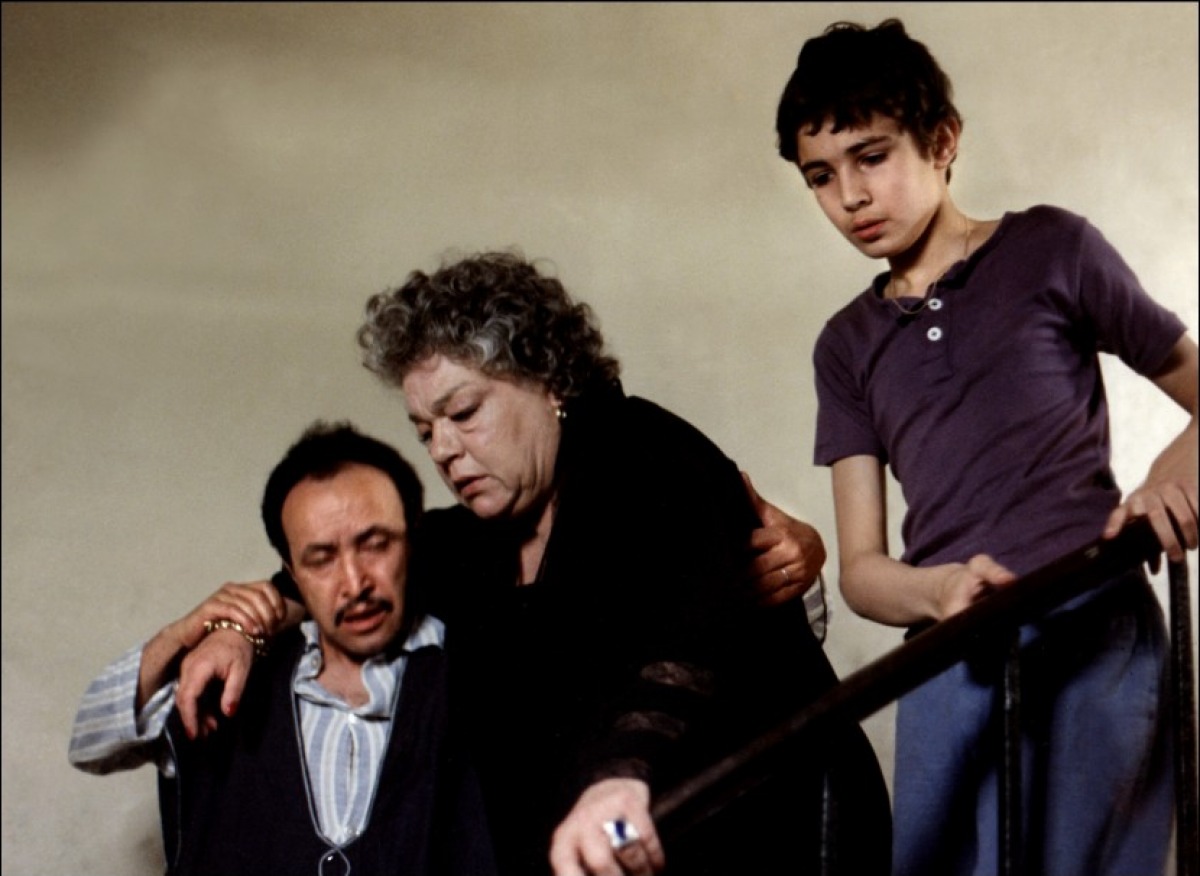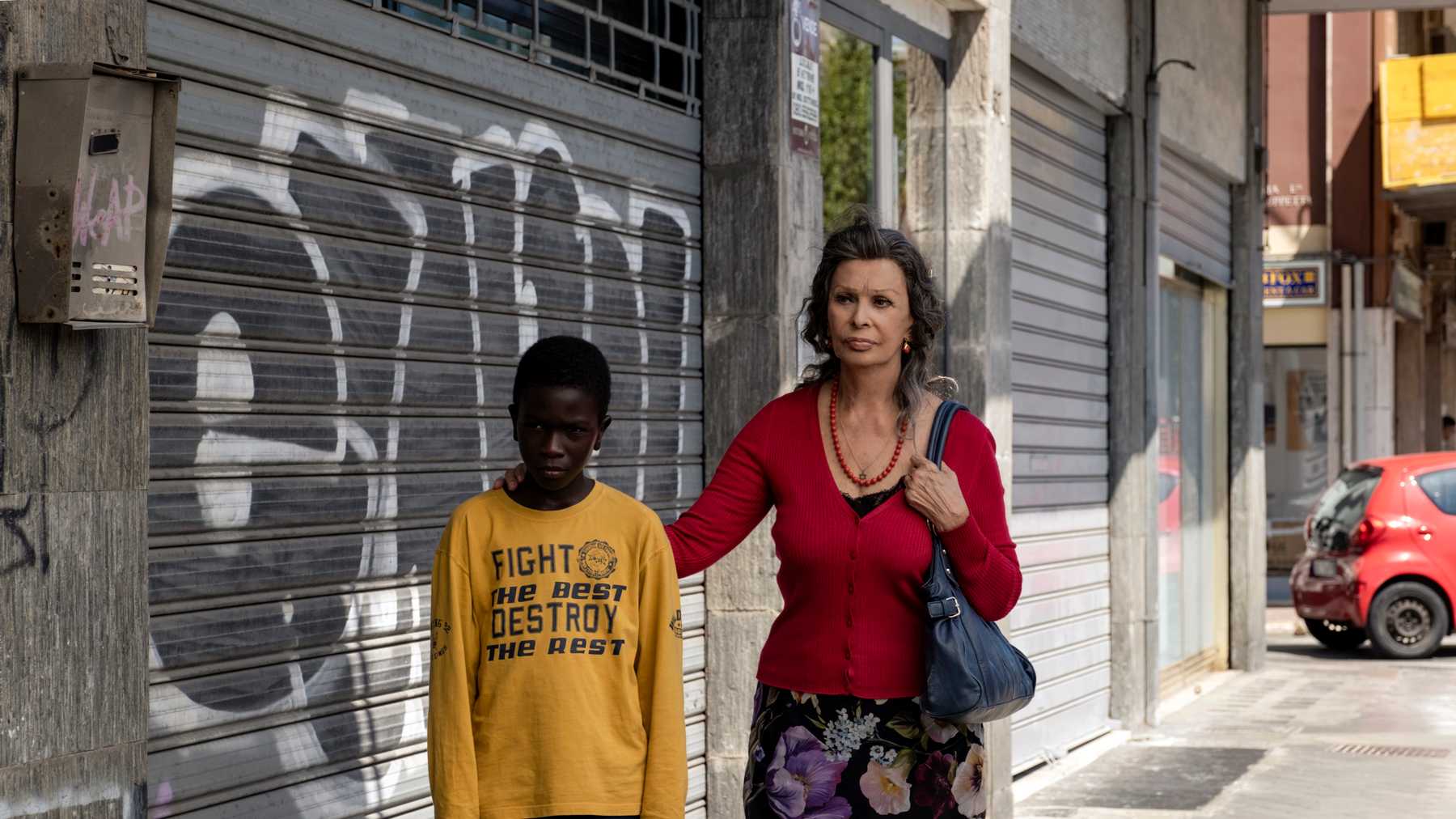Directed by Edoardo Ponti (‘Between Strangers’), Netflix’s drama film ‘The Life Ahead’ (La vita davanti a sé) revolves around the complex relationship between a troubled boy, Momo (Ibrahima Gueye), and his elderly Jewish caretaker, Madame Rosa (Sophia Loren). The first time they meet, Momo steals her purse in a crowded market. However, the local physician, Dr. Coen (Renato Carpentieri), convinces Rosa to take the boy in. A former prostitute, she helps other women look after their children. The people in the neighborhood call her apartment “the refuge.” Initially, the relationship between the two main characters is highly antagonistic, but as the film progresses, an intense connection begins to develop between them. Rosa is a Holocaust survivor and has an ingrained fear of hospitals.
After her health begins deteriorating, she tells Momo that he must ensure that the others don’t put her in a hospital. But when she gets hospitalized, Momo returns to lashing out at everything and everyone around him. He visits her at the hospital and discovers she no longer recognizes him. Remembering his promise to her, he breaks her out of the hospital, takes her to her room in the basement of their apartment building, and spends her last days with her. The film oozes a rare sense of humanity, making the audience think it is based on real-life events. Here is what we have found out about it.
The Life Ahead: 2020 Adaptation of the 1975 Classic

No, ‘The Life Ahead’ is not based on a true story. It’s the 2020 adaptation of the 1975 classic French book ‘The Life Before Us’ (‘La vie devant soi’) by Romain Gary. Ponti wrote the screenplay with Ugo Chiti and collaborating writer Fabio Natale. This is not the first time that Gary’s book has been adapted for the screen. That honor goes to the 1977 French film ‘Madame Rosa.’ Directed by Israeli filmmaker Moshé Mizrahi, it stars Simone Signoret as the titular character and Samy Ben Youb as Momo. The movie went on to win the 1978 Academy Award for Best Foreign Language Film.
In 1987, American theatrical producer and director Harold Prince turned the book into a musical. Titled ‘Roza’, the production had Georgia Brown starring as the titular character, Max Loving as Younger Momo, and Alex Paez as Momo. It had a decent regional run before it was staged on Broadway, where it only lasted ten days. In 2010, Myriam Boyer wrote and directed the telefilm ‘La vie devant soi,’ in which she also portrays Rosa. The character of Momo is played in this version by Julien Soster.
Ponti set his version in the present-day Bari, the capital city of the Italian region of Apulia (Pùglia). These changes meant that the main characters’ backstories had to be changed as well. Madame Rosa is a Holocaust survivor and former prisoner of the Auschwitz concentration camp. The novel is set in the 1970s. By then, Rosa was already old in the book. This implies that she was at least a young woman when she was in Auschwitz. Ponti, however, makes it clear that his Rosa was of the same age as Momo is now. This brings a level of continuity to the story and helps it avoid many of the problems that it would have faced otherwise.
As for Momo, Ponti turns him into a son of Senegalese immigrants. This helps him address one of the most prevalent issues of today, the refugee crisis. Momo of the book, has his own set of issues being an Algerian boy in the 1970s France. In certain ways, the boys’ problems are quite similar, in others, they can’t be more different. Unlike Momo in Ponti’s version, the mother of Momo in the book is still alive but has left him in Rosa’s care.
The relationship between Rosa and Momo is at the core of both the novel and Ponti’s film. While these changes, as mentioned above, do affect certain superficial aspects of that relationship, they don’t alter what it means to both of them and how they respond to it.
Read More: The Life Ahead Ending, Explained


You must be logged in to post a comment.